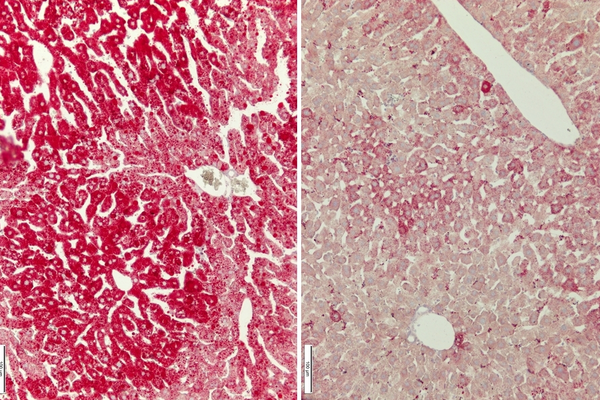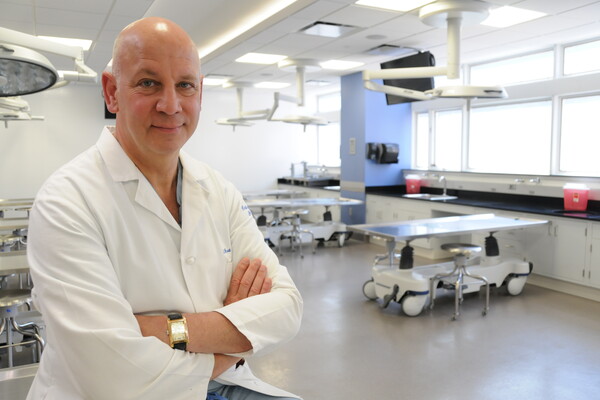5/2
Perelman School of Medicine
Epigenetic Changes May Explain Chronic Kidney Disease, Penn Study Shows
The research of physician-scientist Katalin Susztak, MD, PhD, associate professor of Medicine in the Renal Electrolyte and Hypertension Division, at the Perelman School of Medicine, University of Pennsylvania, strives to understand the molecular roots an
Penn Medicine: Targets of Anticancer Drugs Have Broader Functions than What Their Name Suggests
Drugs that inhibit the activity of enzymes called histone deacetylases (HDACs) are being widely developed for treating cancer and other diseases, with two already on the market. Researchers at the Perelman School of Medicine, University of Pennsylvania, show that a major HDAC still functions in mice even when its enzyme activity is abolished, suggesting that the beneficial effects of HDAC inhibitors may not actually be through inhibiting HDAC activity, and thus warranting the reassessment of the molecular targets of this class of drugs.
Penn Medicine: New Study Finds Similar Outcomes for Repair or Replacement of Damaged Heart Valves
New research presented today at the 2013 Scientific Sessions of the American Heart Association by researchers at the Perelman School of Medicine at the University of Pennsylvania found no difference in outcomes at one-year between two recommended surgical options for treating ischemic mitral regurgitation (IMR) – repair of the leaky valve or its replacem
Penn Medicine Study Shows Women's Risk of Depression Lowers After Final Menstrual Period
Risk of depression is lower in menopausal women after their final menstrual period (FMP) but a history of depression increases the risk of depressive symptoms both before and after menopause, according to a new study from researchers at the Perelman School of Medicine at the University of Pennsylvania.
A Tale of Two Genes: Penn Team Elucidates Evolution of Bitter Taste Sensitivity
It’s no coincidence that the expression “to leave a bitter taste in one’s mouth” has a double meaning; people often have strong negative reactions to bitter substances, which, though found in healthful foods like vegetables, can also signify toxicity. For this reason, the ability to sense bitterness likely played an important role in human evolution.
Penn Medicine Researchers Identify First Genetic Mutations Linked to Persistent Atopic Dermatitis in African-American Children
Two specific genetic variations in people of African descent are responsible for persistent atopic dermatitis (AD), an itchy, inflammatory form of the skin disorder eczema.
Sons of Cocaine-Using Fathers May Resist Addiction to Drug, Penn Medicine Study Suggests
A father’s cocaine use may make his sons less sensitive to the drug and thereby more likely to resist addictive behaviors, suggests new findings from an animal study presented by Penn Medicine researchers at Neuroscience 2013, the annual meeting of the Society for Neuroscience.
Penn Medicine: APOL1 Gene Speeds Kidney Disease Progression and Failure in Blacks, Regardless of Diabetes Status
A large study co-led by Penn Medicine published this week in the New England Journal of Medicine found that African Americans with the APOL1 gene variant experience faster progression of chronic kidney disease (CKD) and have a significantly increased risk of kidney failure, regardless of their diabetes status.
Penn Medicine: Study Shows Moms May Pass Effects of Stress to Offspring Via Vaginal Bacteria and Placenta
Pregnant women may transmit the damaging effects of stress to their unborn child by way of the bacteria in their vagina and through the placenta, suggest new findings from two animal studies presented by researchers at the University of Pennsylvania at Neuroscience 2013, the annual meeting of the Society for Neuroscience.
Penn Medicine Orthopaedic and Plastic Surgeon Receives Award for Excellence and Achievement in Orthopaedics
The Arthritis Foundation recently presented the Sir John Charnley, MD, Award to L. Scott Levin, MD, FACS, chair of the Department of Orthopaedic Surgery, the Paul B.
In the News
Man does DNA test, not prepared for what comes back ‘unusually high’
César de la Fuente of the School of Engineering and Applied Science and Perelman School of Medicine says that Neanderthal DNA provides insights into human evolution, population dynamics, and genetic adaptations, including correlations with traits such as immunity and susceptibility to diseases.
FULL STORY →
Rural jails turn to community health workers to help the newly released succeed
According to Aditi Vasan of the Leonard Davis Institute and Perelman School of Medicine, evidence is mounting in favor of the model of training community health workers to help their neighbors connect to government and health care services.
FULL STORY →
What is food noise and how do you get rid of it?
According to Thomas Wadden of the Perelman School of Medicine, people taking GLP-1 drugs are finding that daily experiences that used to trigger a compulsion to eat or think about food no longer have that effect.
FULL STORY →
How to die in good health
PIK Professor Ezekiel Emanuel says that incessantly preparing for old age mistakes a long life for a worthwhile one.
FULL STORY →
Mayor Parker’s plan to ‘remove the presence of drug users’ from Kensington raises new questions
Shoshana Aronowitz of the School of Nursing and Ashish Thakrar of the Perelman School of Medicine comment on the lack of specificity in Philadelphia’s plan to remove drug users from Kensington and on the current state of drug treatment in the city.
FULL STORY →







